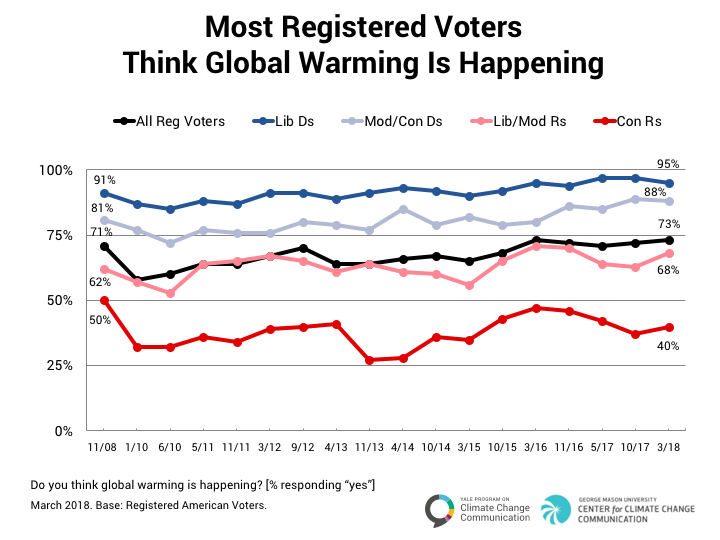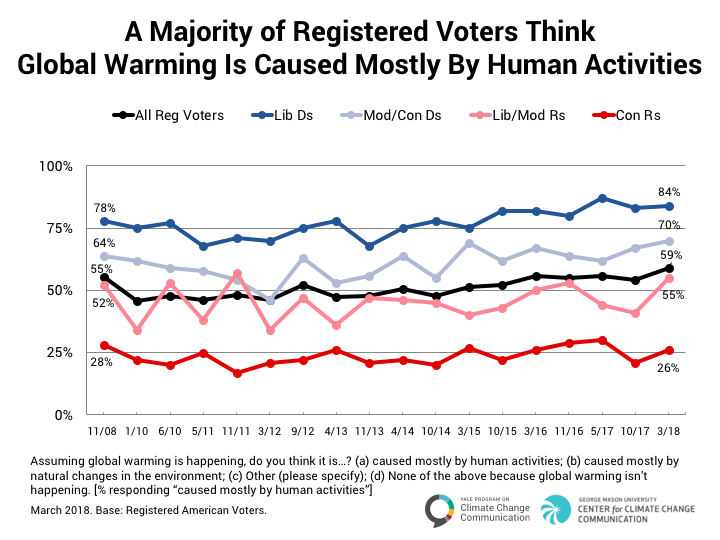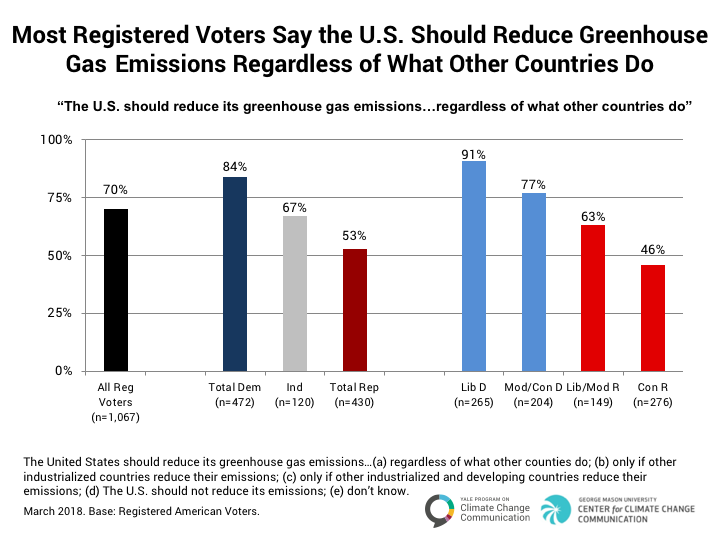2 August 2018
American (voter) attitudes on climate change are complex
Posted by Shane Hanlon
By Shane M Hanlon
Part of my job in AGU’s Sharing Science program involves surfing the internet to find the latest social science and public opinion polls that deal with polarizing science, especially views around climate change. Earlier this year I came across a public-opinion survey conducted by the Alliance for Market Solutions, who “aim to educate conservative policymakers on the benefits of market-oriented solutions to one of America’s most pressing economic challenges: advancing clean energy and reducing carbon pollution.” In a poll they conducted they surveyed 800 registered voters age 18-35, “as well as a set of focus groups conducted of young center-right adults in Charlotte, NC”, in January 2018. They found: 


So, majority of millennials accept human-influenced climate change, think that we should try to slow/stop it, and these views are shared across political leanings. Now, the degree of agreement varies depending on political affiliation, which could be expected.
When showing this data in workshops and trainings, I often say, “The future is bright!”, making the assumption that things now are dire (not to say they’re not). But this begs the question, what do voters of all ages currently think about the science behind climate change? Insert Yale Program on Climate Change Communication. First off, check out their stuff, it’s pretty amazing. Secondly, they released a report in March 2018 entitled “Politics & Global Warming, March 2018.” According to their survey of 1,278 American adults, most registered voters accept that global warming is happening and that it’s human-influenced.


In contrast to the report of right-leaning millennials, while majority aggregate numbers of register Republicans accept that global is happening, they do not accept that it’s human-influenced. But, similar to the millennial numbers, a slim majority of registered Republicans agree that the US should do something about global warming. 
So, what does all this data tell us? Well, the surveys are hard to compare side-by-side. Word choice means something and using “climate change” versus “global warming” could influence those surveyed in different ways. This, in addition to numerous other factors, should be taken into consideration when looking at the larger voting body versus millennials. Having said that, Americans largely accept that climate change (/global warming – again, words matter) is happening and that we are the primary cause. Having this knowledge as a starting point can be crucial when talking to folks about our role in climate change and what we can do to help/not exacerbate the problem.
–Shane M Hanlon, PhD is a Senior Specialist in AGU’s Sharing Science program and a millennial (using the 1981-1997 Wikipedia definition).


 The Plainspoken Scientist is the science communication blog of AGU’s Sharing Science program. With this blog, we wish to showcase creative and effective science communication via multiple mediums and modes.
The Plainspoken Scientist is the science communication blog of AGU’s Sharing Science program. With this blog, we wish to showcase creative and effective science communication via multiple mediums and modes.
Perhaps we should ask both about “climate change”, and then about “global warming”? Any differences might be interesting.